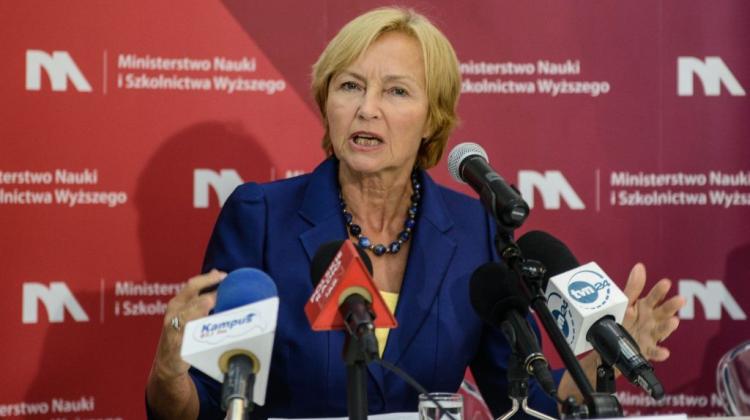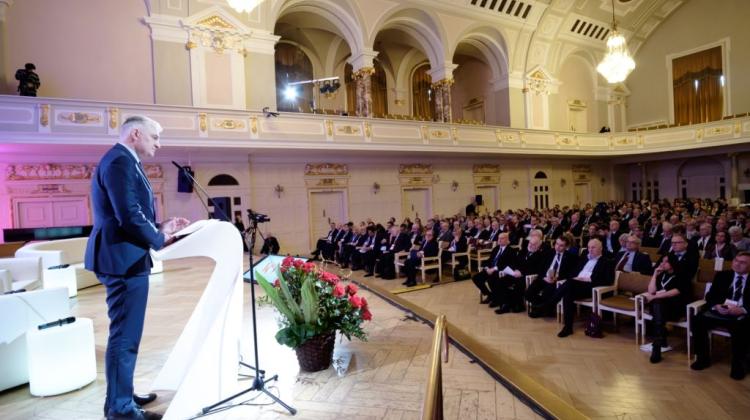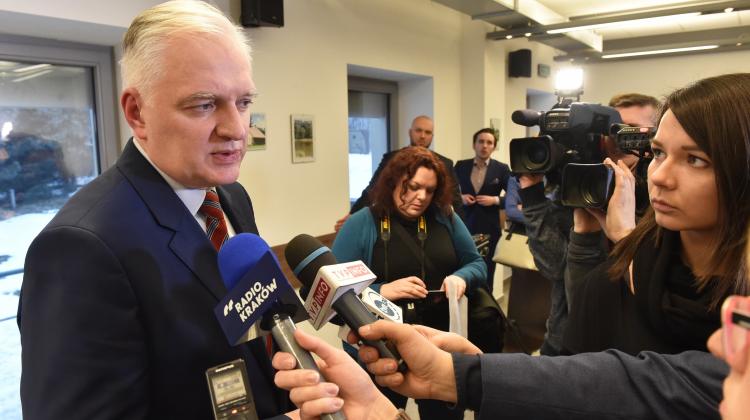Minister of Science encourages universities to appoint ombudsmen

Minister of Science asked the rectors to consider a debate on conflict of interest related to reviewing scientific papers and promoter supervision. She also proposed universities that they appoint ombudsmen. This idea has the support of the head of CRASP.
In a letter to the rectors, published last week on the website of the Ministry of Science and Higher Education, Minister Lena Kolarska-Bobińska noted that she received signals and information of various cases of scientific misconduct, in particular possible conflicts of interest in the reviews of scientific papers and promoter supervision. "Conflict of interest raises doubts as to the transparency of the procedure for awarding academic degree and title. This undermines the ethos of the scientist we want to pass on to younger generations of researchers" - she emphasised.
Minister cited media reports of the doctoral dissertation, defended by the President of BCC Marek Goliszewski at the Faculty of Management, University of Warsaw. "The dissertation promoter Prof. Andrzej Zawiślak in a public statement made it clear that he +considered himself be a friend of Marek Goliszewski+. Such a declaration may raise doubts as to maintaining appropriate criticism in relation to the promoted dissertation by the promoter" - wrote Kolarska-Bobińska.
In this context, head of the Ministry of Science encouraged rectors to appoint ombudsmen at universities. This institution is present in many European countries, for example in the UK, Germany and France. As an independent and neutral mediator, an ombudsman would resolve disputes and conflicts in universities. He would be available to students, academics and administration.
In Poland, few universities have ombudsmen advocates; they have been appointed recently, for example, at the University of Warsaw and the Nicolaus Copernicus University in Toruń.
This function is independent of the management structure. Ombudsmen do not act as advocates of individuals or separate groups of people, but as promoters of fairness and justice within the organization. "I am convinced that the work of ombudsmen at your universities will help to improve their functioning, as well as increase public awareness, focus on understanding, cooperation, social dialogue" - Kolarska-Bobińska stressed in the letter to the rectors.
She expressed the hope that the problems she raised in the letter and possible solutions would be discussed at meetings of university rectors. The next such meeting of the Conference of Rectors of Academic Schools in Poland (CRASP) was held on Friday and Saturday in Gdańsk.
"The idea of appointing so-called ombudsmen, proposed by the minister - modelled on the Anglo-Saxon and Scandinavian example - who would serve as mediators in solving various types of problems at universities, is worthy of support" - told PAP President of CRASP, Prof. Wiesław Banyś.
"Ombudsman would be helpful in resolving problems that may arise in academic life" - added the head of CRASP. In his view, this institution can work at universities as well as the Human Rights Defender institution works in social life.
According to the professor, in addition to control and mediation, no less important is "building the culture of social life, including academic life, based on trust". "It is about building trust as the basis for the functioning of any mature society, including the academic community" - explained Prof. Banyś.
Referring to the risk of conflicts of interest in the reviews of scientific papers, the professor pointed out that in any situation every effort should be made to avoid them. He also noted "not definitive statement should be made before examining each case".
He emphasized that various institutions functioning at universities, for example faculty councils, are competent to settle doubts on issues related to doctorates, habilitation and professorial titles. "These bodies, composed of specialists and experts in the disciplines in question, should speak out in case of doubt" - said Prof. Banyś.
In her letter, Kolarska-Bobińska also reminded of the "Researcher’s Code of Ethics" adopted in 2012. by the Committee for Ethics in Science. The document states that reviewers should not undertake a scientific review, if it goes "beyond the scope of their scientific experience and competence", and that "they should refuse to participate in the assessment process in all those cases where there is a conflict of interest between them and the reviewed person".
PAP - Science and Scholarship in Poland
zan/ agt/ malk/
tr. RL
Przed dodaniem komentarza prosimy o zapoznanie z Regulaminem forum serwisu Nauka w Polsce.


















